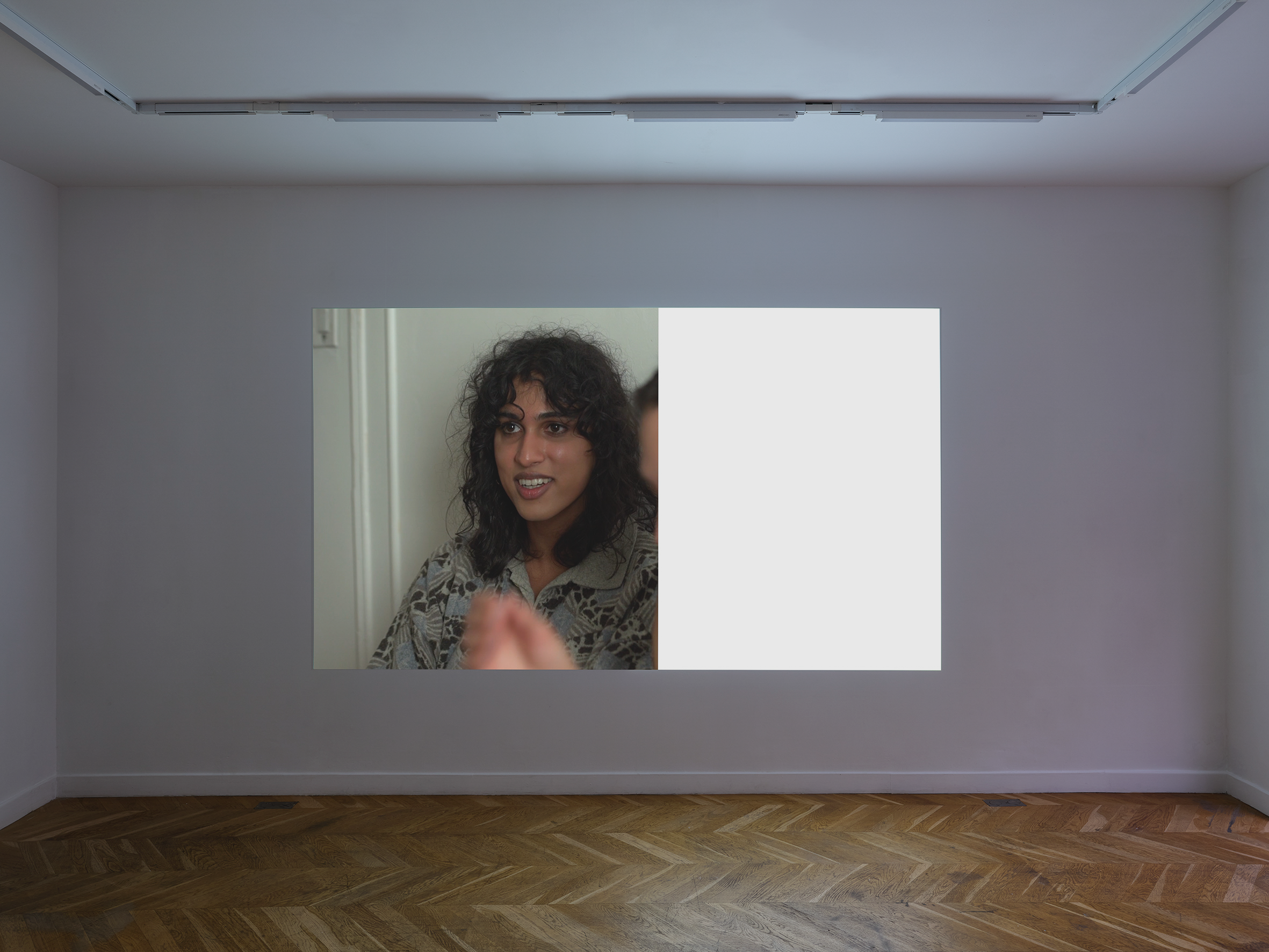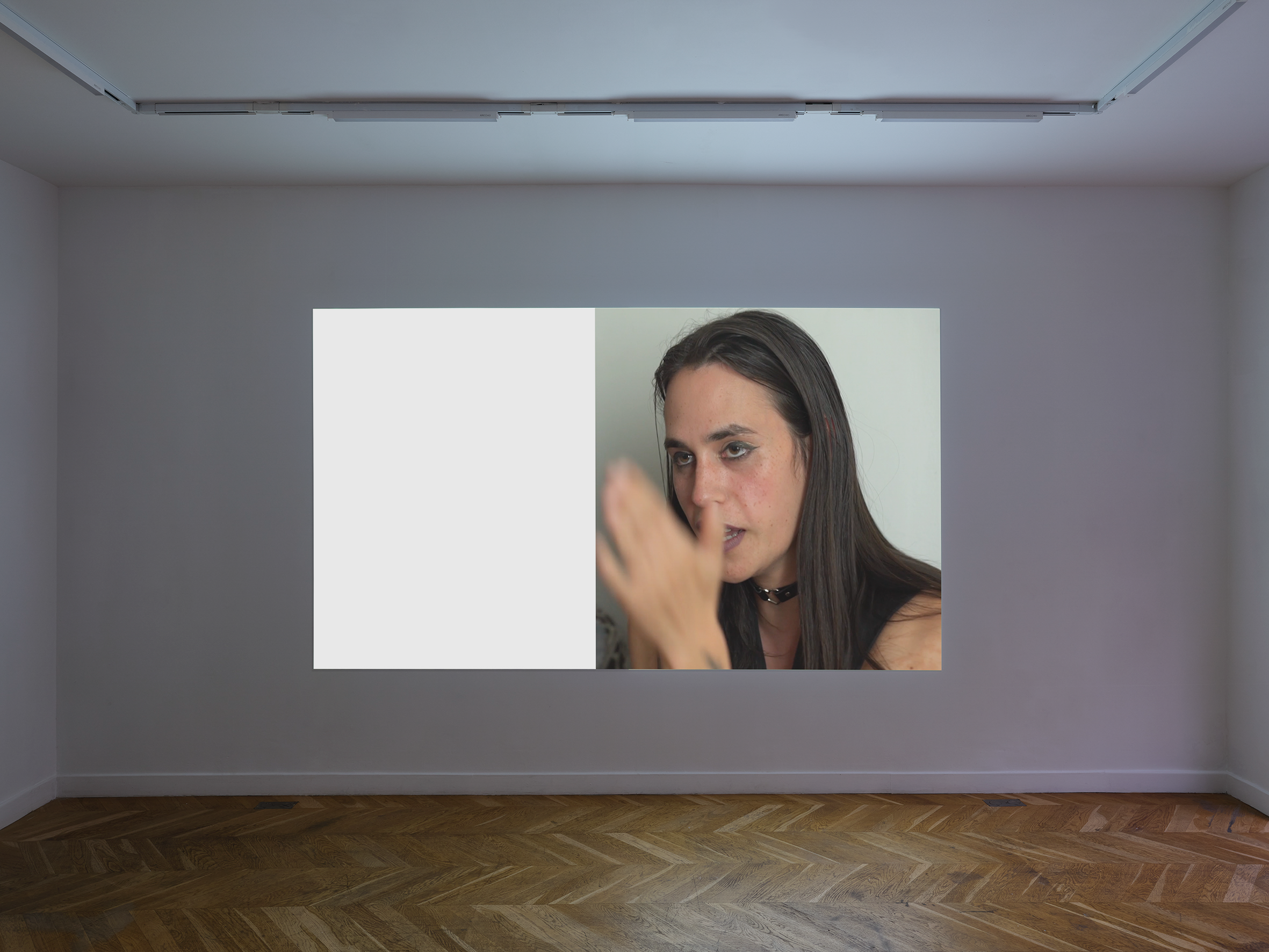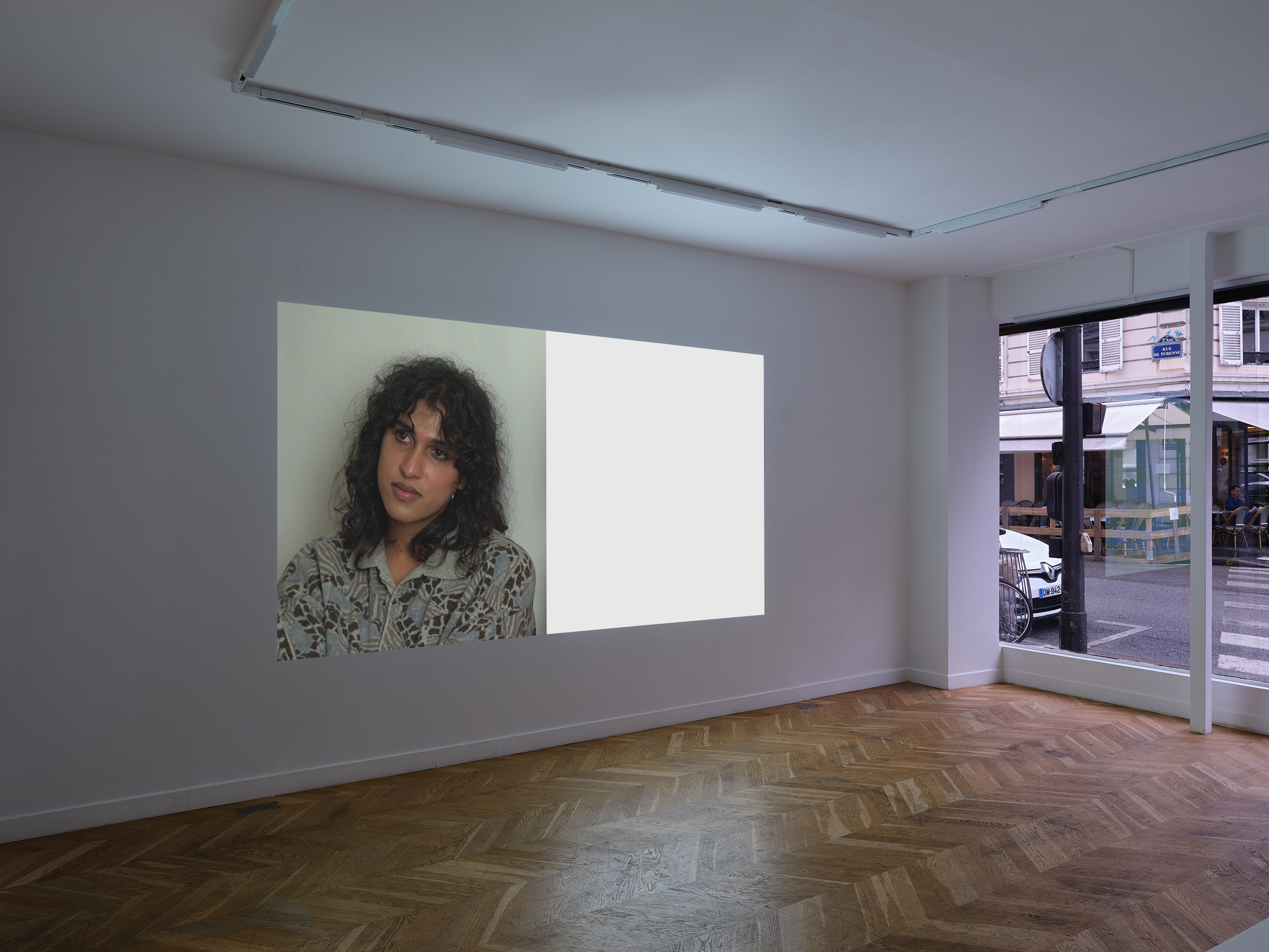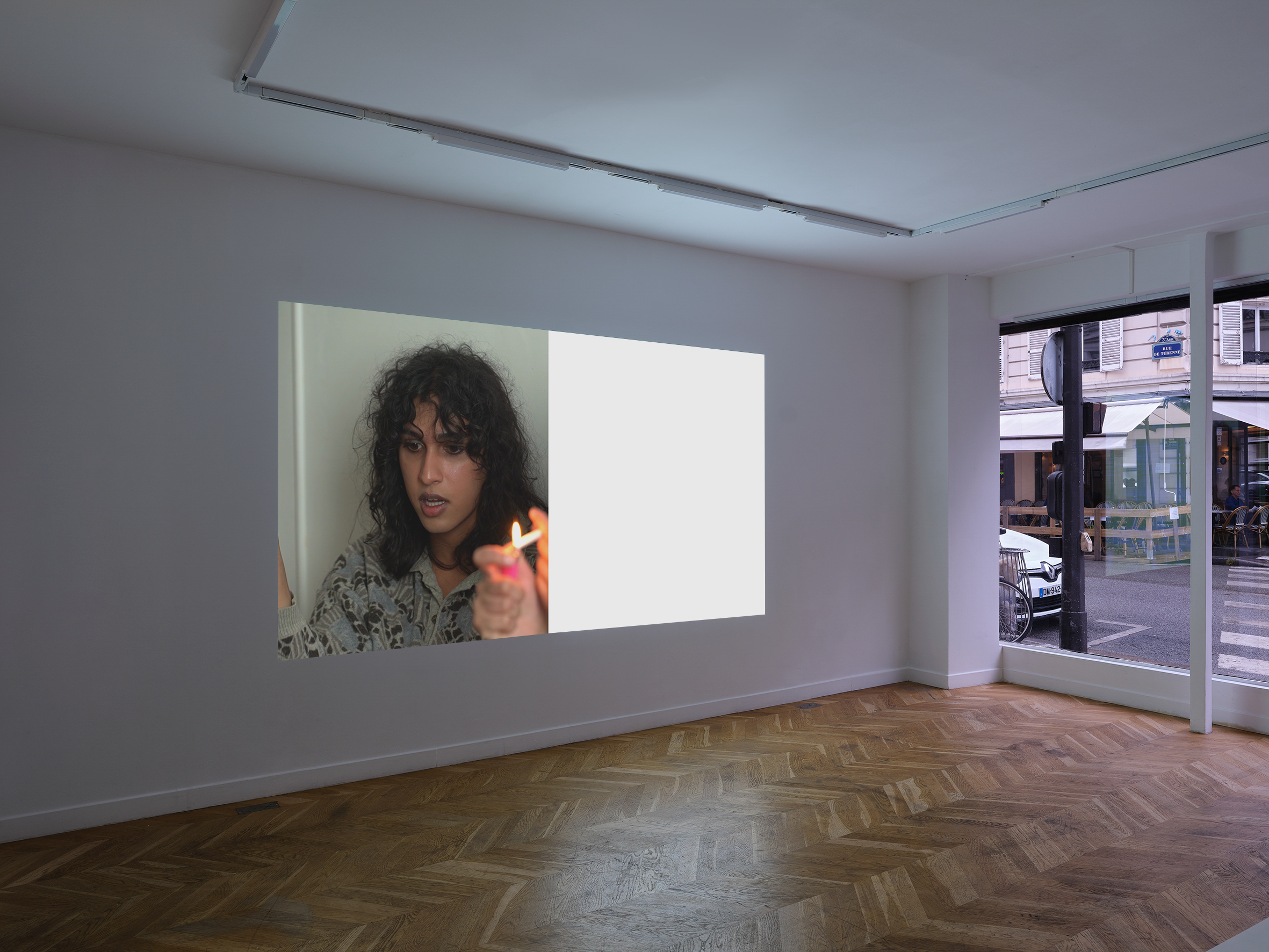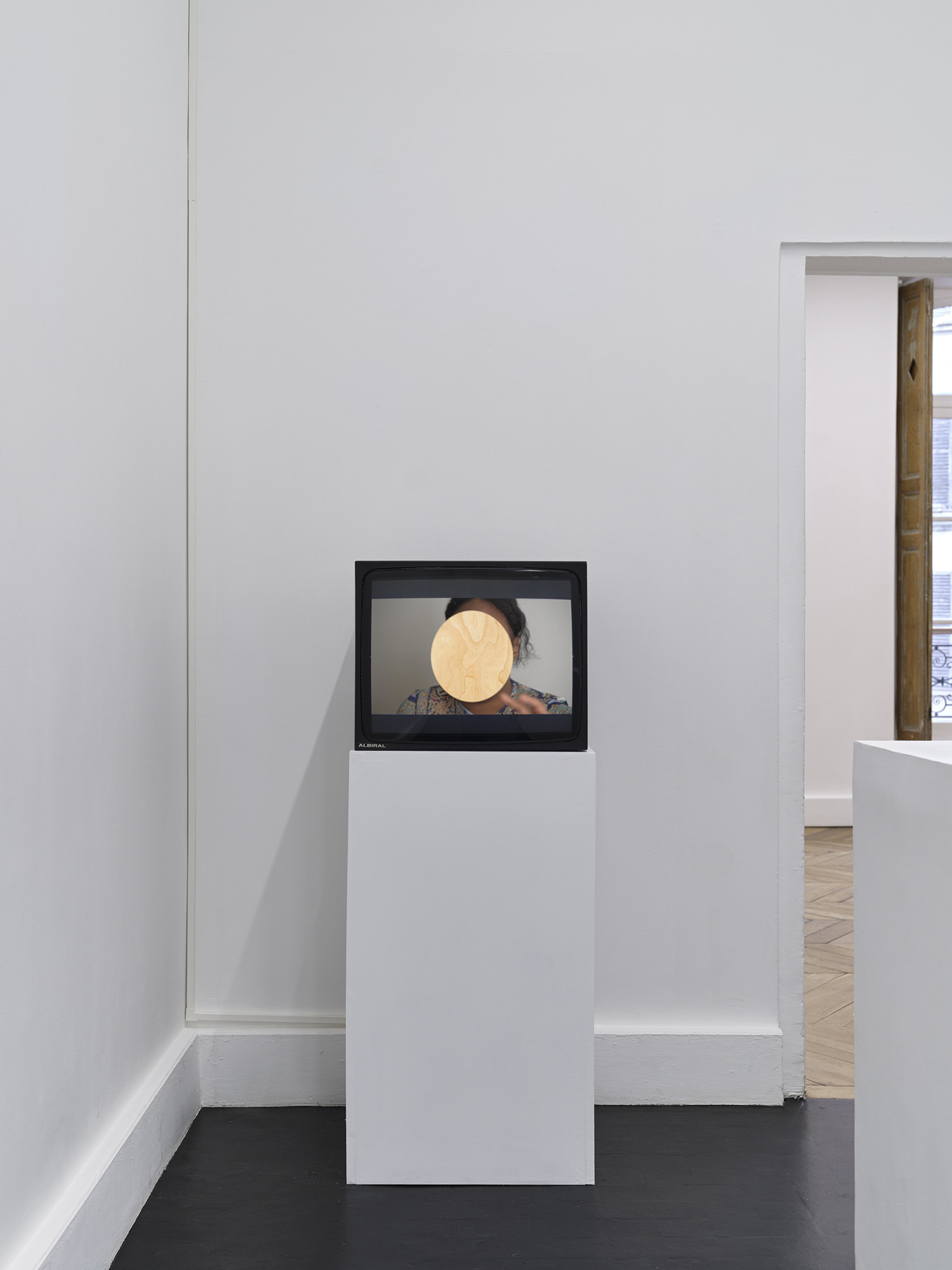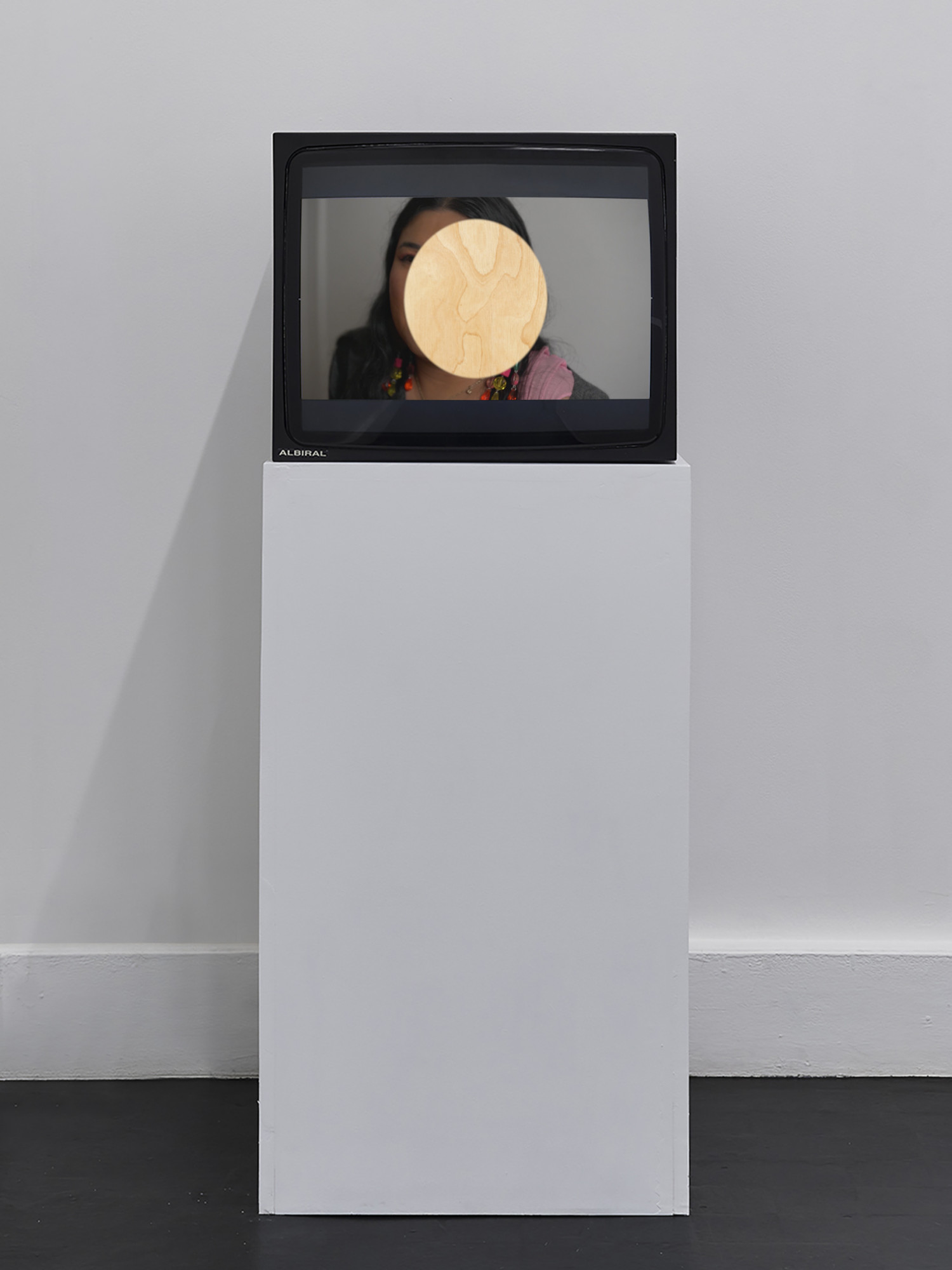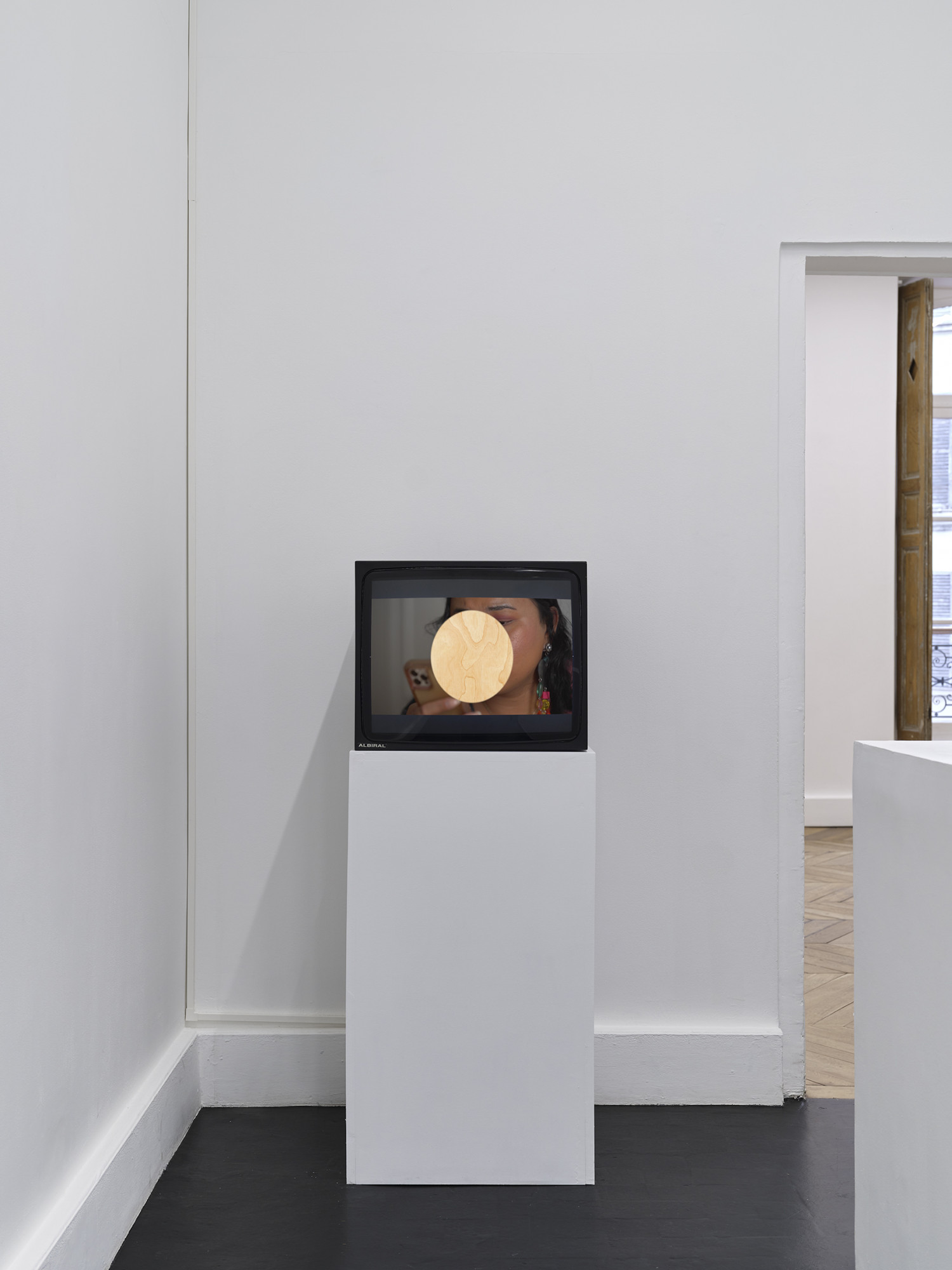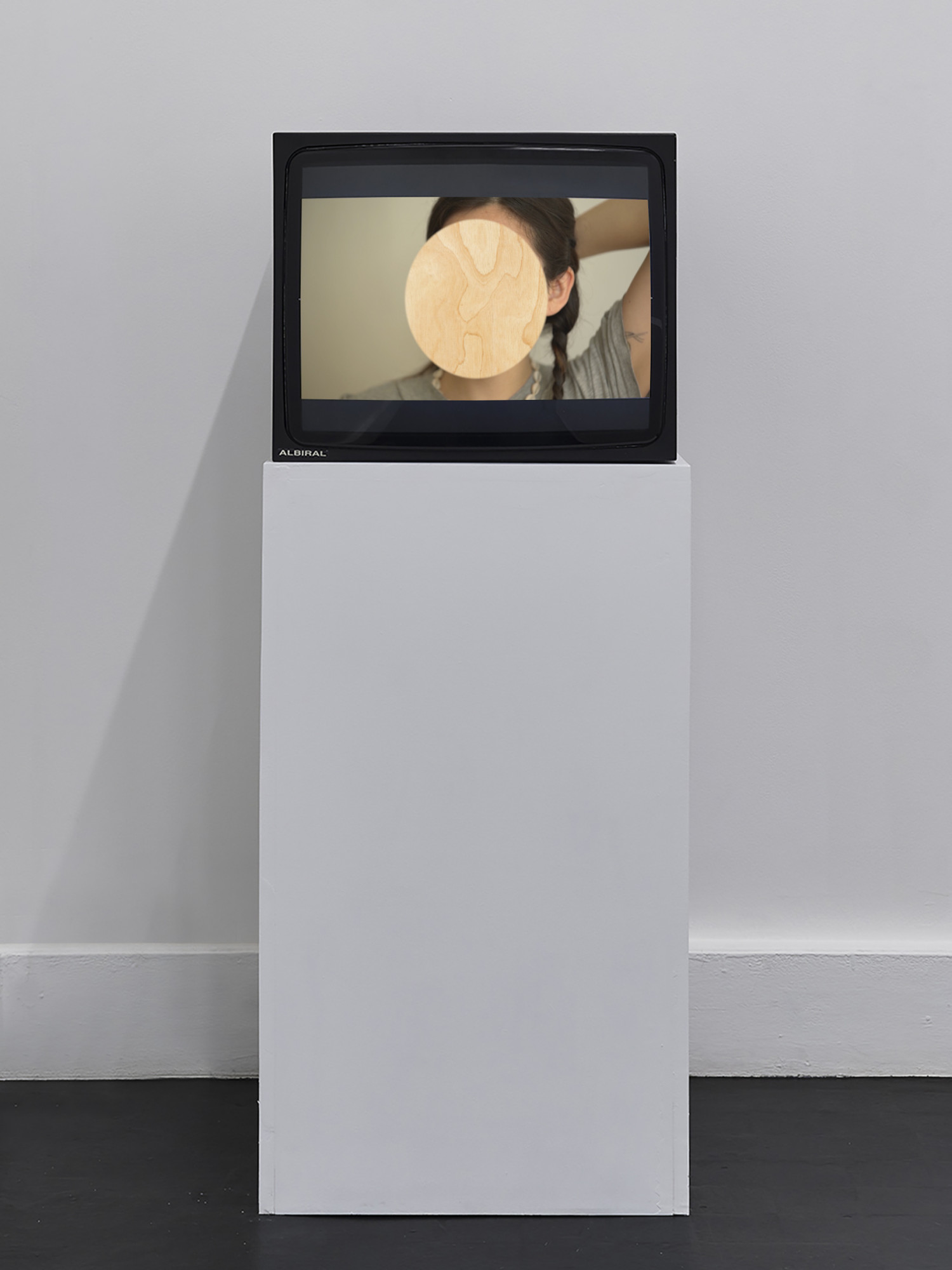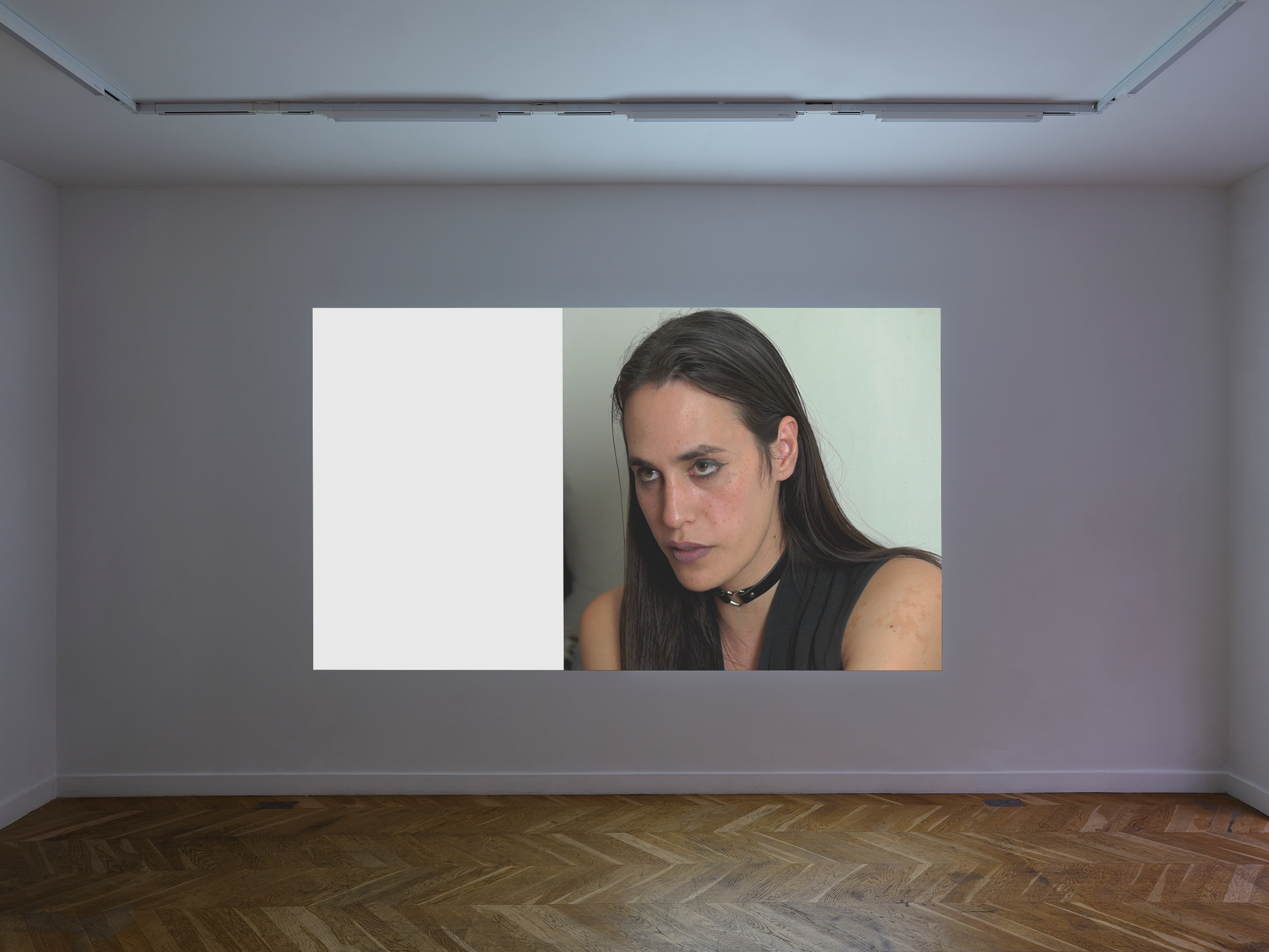Fitzpatrick Gallery
Paris
Hannah Black
2020
Sep 02, 2023
Sep 30, 2023
Opening reception
September 2, 2023
6 — 9 pm
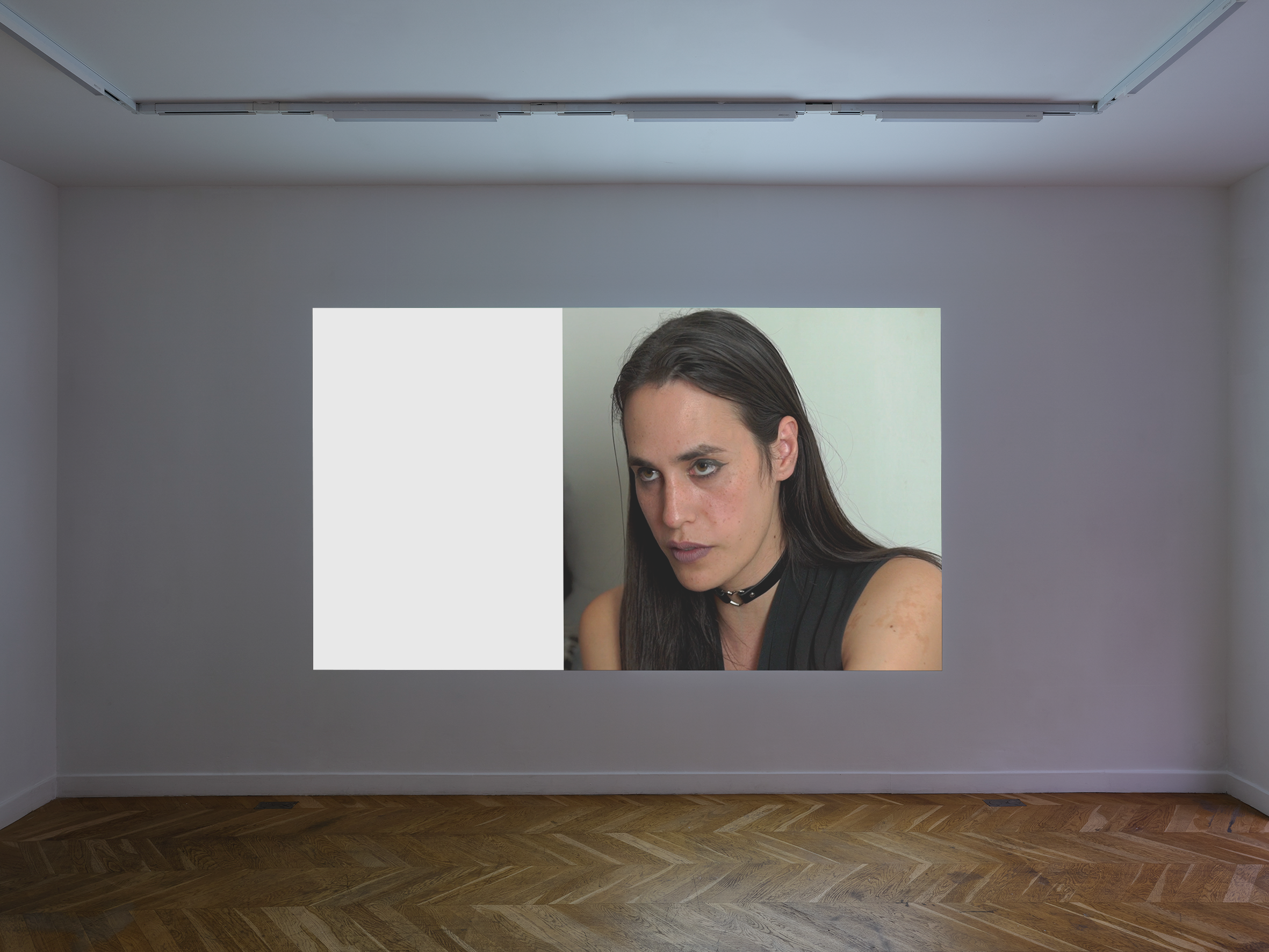
The reactions to the protest movements in France in the weeks following the racist murder of a young teenager by a white police officer in June 2023 were apt proof of the only contempt that oppressed classes could receive when presenting themselves as their own political entity. What had largely been characterized as a set of vital demonstrations, had been transcribed as a global ensauvlement of those who were set out to silence. At the same time as an obviously racist murder, part of the police’s colonial history, was taking effect, the furious reactions of those who could also have been shot - and who symbolically smashed cars, shop windows, or burned the flag of the country that had colonized and impoverished their parents’ - were solemnly judged as barbarians, thieves, murderers and looters. I remember precisely the moment when, watching television with my friends, the dissociation was made, as if obvious, between a demonstration - led by white activists - and a riot - led by non-whites.
They speak of a ‘new cartography of riots’ in neighborhoods they call ‘sensitive’, ‘popular’. They speak of ‘urban violences even more intense than that of 2005’, referring to the movements that followed the deaths of Zyed Benna and Bouna Traoré, who were electrocuted in an electrical substation while trying to escape from the police. They speak of a mob of looters for a few stolen Lacoste sweaters, a few bags taken from broken windows. Yet this looting carries its meaning in its reverse; it manifests the direct abolition of the commodity form, the suspension of exchange structures from the rules of the Capital, the rupture of the social contract in its identity of class, gender and race.
I still wonder how it is possible to let people believe that a social contract exists, and that responses to the systematic killing of a targeted population are still feasible without fury. I remember feeling powerless, totally powerless, but ecstatic in the middle of a burning city.
It is the use of this symbolic force that is discussed by Aaina Lakha and Kay Gabriel in Politics (2022). How far can this strategy go? How does it lead to a popular consciousness, a common receptivity? Through the elaboration of these autonomous means, rioting and looting is engaged as a time when the state is losing out, unable to contain populations within the systems it has established through the authority of the police. It’s disobedience. There’s also the question of purpose, and the extent to which its strategies lead to a modification of class, gender and racial systems. Maybe that’s not the question either, and that these moments manifest themselves for something else. That the organizational expression of these struggles is above all a moral, or anti-moral. Because it creates this pleasure, this joy in fulfilled desire, forbidden in this very social contract, against the injunction to obey in order to form a collective convention that elaborates the extraordinary. Which, in the end, is the closest thing we have to the idea of freedom.
It’s as if the riots had triggered something we’d lost, to salvage a bond that was on the order of the brutal, the passionate. As if it were suddenly possible to be in the street, in the squares, on the bus shelters for a valid, honorable reason. That it was the only way to express grief, and to express it together. Those who are opposed to it know full well that it’s not gratuitous violence - for there’s no such thing as gratuitous violence - but one that responds to a whole history that goes unpunished, unabated. Suddenly there was an opening to the outside world, amidst burnt-out spaces, destroyed cars, deconstructed shop windows; structures characteristic of an oppression too brutal to persist. It was that of a world that had also suffered from its distances, during the confinement measures, and felt ready to reunite without fear of falling ill, on the contrary. There was a purpose we had sought. A purpose that Hannah Black herself describes as something that can’t resurrect the dead, but can resurrect the dead spaces of cities. Something that has to do with understanding the power of our presence, of the act of being here, of occupying, in front of buildings tagged with the names of those who have died and been killed, in front of walls with holes in them like new passages towards others, like a new organization that is being established, and in which we still believe.
Broken Windows (2022) brings together interviews with three anonymous individuals who, in 2020, took part in the looting of dozens of stores in the streets of New York as part of the protests sparked by a racist crime committed by a white police officer in the USA that same year. If every detail relating the places and names of these events is masked by the sound of a police car siren, it is in this sense the application of a conscious censorship, put in place to protect the discourses of these activists, and to protect their legal identities. Raising the question of how far activist political discourse can reach in a judicial system established through reprobation and punishment, each experience asserts itself in the possibility of gathering, translating and transmitting facts that cannot be precisely archived.
Impotent in the face of the rule of justice - which defends only those who decide it - the identities of the three activists are masked by a piece of wood, a barricade, the same as those erected on all the major stores during the BLM movement (and which it was assumed had increased the cost of wood by 275% in the USA), and others, in France too, as everywhere else. It’s a report of censorship enforced by authority, by what Cedric J. Robinson understood as all the events, instruments and organs which contribute the existential boundaries to any and all individuals. (…) An absurd, irrational and arbitrary placed insight which contains the first and last marks in the universe sustained by faith and fatigued intellectual bruteness in the presumption that there is nothing beyond.
Perhaps, it’s surely because it might only for this ecstasy that these events take place, that they are in essence the true meaning of life.
— Hugo Bausch Belbachir
Hannah Black (b. Manchester, UK) is an artist, writer, and editor based in Marseille, France. Her work functions conceptually through a co-dependence between thinking and feeling, using conversations and collaborations featuring texts, voices, prints, videos, sculptural interventions, and performances. Her work has been presented as solo exhibitions at The Art Gallery of York University (Toronto); Luma Westbau (Zürich); Arcadia Missa (London); Kunstverein Braunschweig (Braunschweig); Performance Space (New York); Isabella Bortolozzi (Berlin); CAC - Centre d’Art Contemporain (Geneva); Chisenhale Gallery (London); Bodega (New York); New Museum Theater (New York); Transmission (Glasgow), as well as within group exhibitions at ICA - Institute of Contemporary Art (Los Angeles); Kunstverein Freiburg (Freiburg); Busan Biennale (Busan); Manifesta 13 (Marseille); Swiss Institute (New York); Sharjah Biennial (Sharjah); Tate St Ives (Cornwall); Arsenal Contemporary (New York); Kunsthalle Wien (Vienna); The High Line (New York); Julia Stoschek Collection (Berlin); The Kitchen (New York); Chateau Shatto (Los Angeles), amongst others. Black’s critical writing encompasses various contributions to The New Inquiry, Artforum, and Bookforum. Her previous books include ‘Tuesday or September of The End’ (2021), ‘Dark Pool Party’ (2016), and ‘Life’ (2017, with Juliana Huxtable).
2020 is Hannah Black’s first solo exhibition in France. It is curated by Hugo Bausch Belbachir as part of Condition, a series of exhibitions focusing on moving images and artists’ films.
We are very thankful to Hannah Black, and acknowledge the support of Arcadia Missa, London.
Press :
Flash Art
Numéro Magazine
Les Inrockuptibles, by Ingrid Luquet-Gad
Cura.
Contemporary Art Daily
Contemporary Art Library
